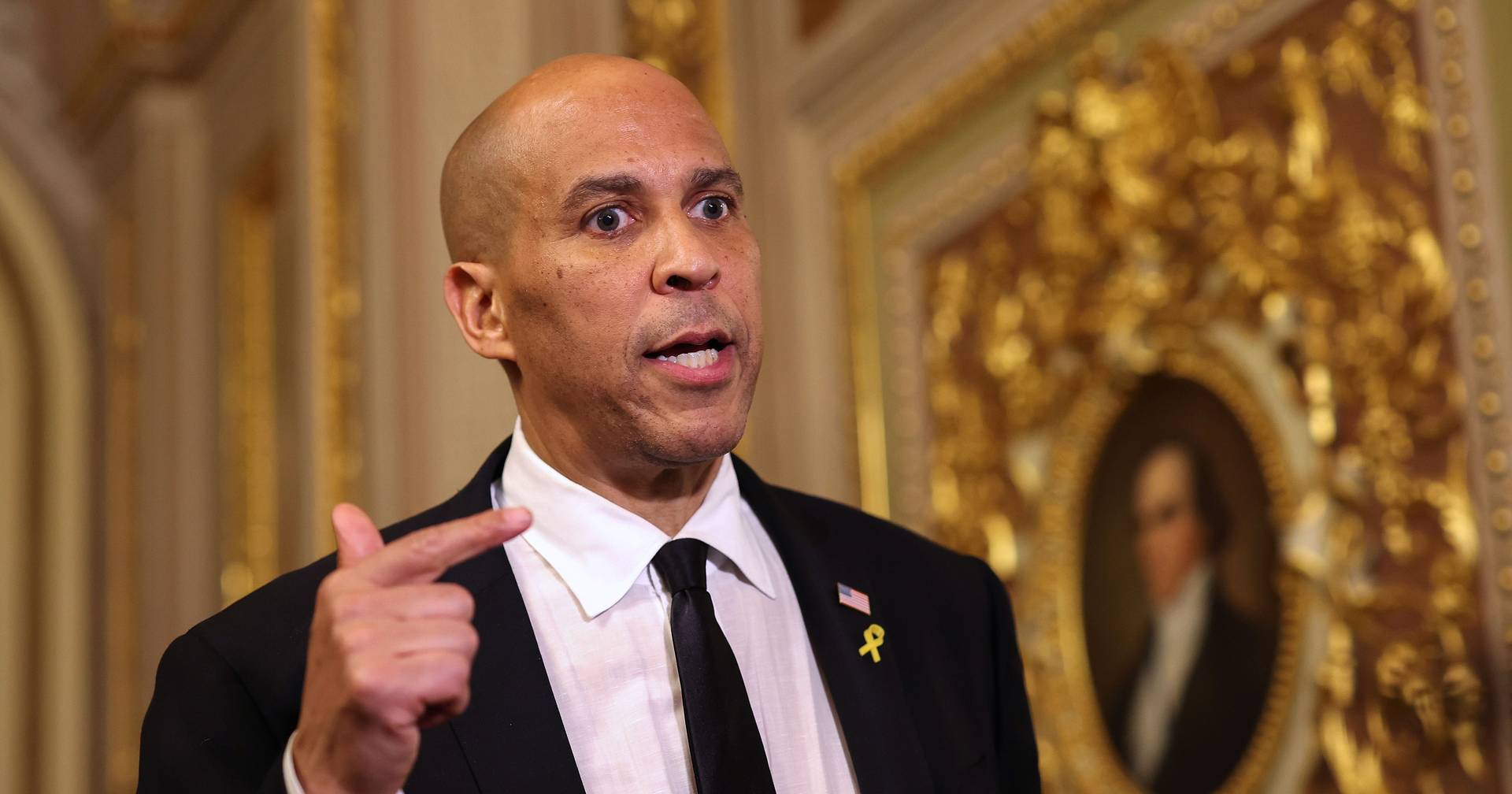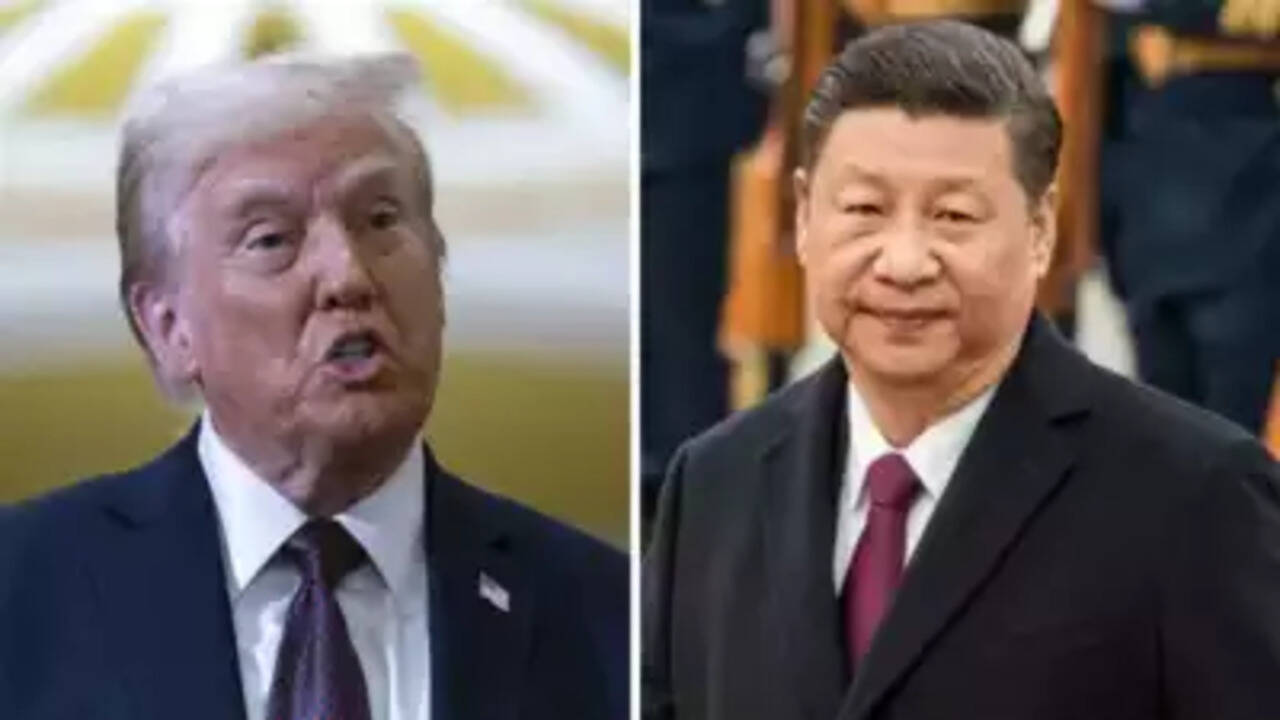Cory Booker's Historic Senate Speech Against Trump
Cory Booker's record-breaking 25-hour speech marks a significant protest against Trump's policies, igniting debate among law-makers and Americans about political resistance and civil rights.
Published April 08, 2025 - 00:04am

Image recovered from lapagina.com.sv
In a remarkable political maneuver, U.S. Senator Cory Booker delivered the longest speech in the history of the United States Senate, surpassing previous records with an oratory lasting 25 hours and 5 minutes. This marathon session was a direct protest against the policies of President Donald Trump, highlighting Booker's commitment to addressing what he perceives as detrimental impacts of the administration on the American public.
Starting at 7 p.m. on a Monday, the Democratic senator from New Jersey vowed to continue his discourse as long as physical endurance allowed. His commitment was underscored by a single Bible verse in his pocket, symbolizing perseverance amidst adversity. Booker's speech eclipsed the former record held by Strom Thurmond in 1957, which lasted 24 hours and 18 minutes. Thurmond had famously resisted the Civil Rights Act, a connection Booker found poignant considering his own ties to civil rights advocacy.
The filibuster tactic used by Booker involved speaking continuously, thereby stalling Senate proceedings as no active legislation was being debated. Notably, this dramatic protest highlighted growing frustrations within the Democratic Party, unable to wield significant power in a Republican-dominated Washington. Despite being largely symbolic in nature, the gesture was met with enthusiasm from supporters and fellow Democrats, who saw it as a vital demonstration of opposition against Trump's measures.
Booker's address was peppered with emotional references to historical civil rights figures, including John Lewis, whom Booker credited as a mentor. The senator echoed Lewis's call for creating 'good trouble' in order to provoke necessary societal changes. This speech provided a platform for Booker to expressly condemn cuts to essential social services like Medicaid, a move he argued would bolster tax breaks for the wealthiest Americans.
This impassioned oratory also served as a rallying cry for voters disillusioned by the current administration's actions, ranging from budget slashes to federal agency dismantling, actions compounded by Trump's audacious use of executive orders. Booker's challenge to the status quo resonated across public galleries, teeming with supporters, and onlookers who had gathered outside the Capitol.
As the record-breaking moment approached, an air of anxious anticipation filled the Senate chamber, culminating in applause echoing through the halls once Booker achieved the historic feat. The event even inspired a small assembly outside, with placards thanking the senator for his defiant stand.
Booker's employment of the filibuster highlights its enduring role in American legislative tactics, a method not used to obstruct specific legislative action in this instance but to send a powerful message. Historical precedence reveals other marathon speeches flayed from similar cloth, intended to highlight key issues such as gun control and national security.
The impact of Booker's speech on the political landscape is profound, symbolizing a visible resistance aligned against a backdrop of national crisis. This act of political theater, invoked without direct legislative implications, still encapsulated a broader expression of dissent and frustration from the Left, showcasing persistence in advocating for foundational rights and protections.
Booker's demonstration remains indicative of a larger struggle within the Democratic Party to define its strategy amidst substantial political challenges. By invoking such a visible method of protest, Booker positions himself as a leading voice within the party's fight against the Trump administration, cementing his prominence as a potential contender in future political cycles.
Booker's efforts resonate with historical significance, potentially inspiring a new wave of advocacy and political engagement aimed at addressing issues of inequality, health care reform, and civil rights. His speech not only broke records but also reinvigorated conversations regarding the pressing need for action against perceived injustices in contemporary governance, amplifying the urgency for systemic change.





